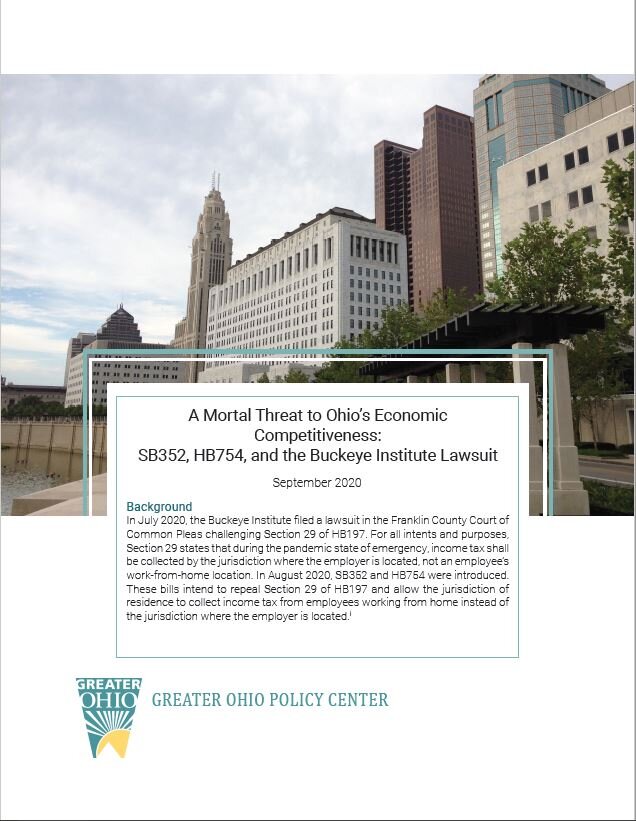New analysis counters short-sighted lawsuit and legislation that would seriously threaten Ohio’s major cities if passed.
The Greater Ohio Policy Center (GOPC) has released a Rebuttal to SB352, HB754, and a recently filed lawsuit, measures which seek to undo long-standing tax structures in the midst of a pandemic and redirect work-from-home employees to pay their income taxes where they live, not where their workplace is located.
For over six decades, working Ohioans have paid income taxes to the jurisdiction where they work. In the Rebuttal, GOPC shows how attempts to change the tax collection structure today are short-sighted and mortally jeopardize Ohio’s economic competitiveness. Ohio’s major cities drive the state’s economy; Ohio’s six largest counties account for more than half of the state’s GDP. Cities leverage their income tax revenue to pay for long-term strategic infrastructure and capital investments, such as roadways, bridges, and water quality measures. These investments have retained and attracted employers, while also benefitting the metro regions surrounding Ohio’s largest cities.
Passage of SB352 or HB754, or a successful lawsuit, could cost Ohio’s 6 largest cities $306 million annually. Other cities that rely heavily on income tax revenue will experience similarly negative impacts.
Utilizing a new national dataset from the Lincoln Institute of Land Policy that details the revenues and expenses of Ohio’s six largest cities from 1977 to 2017, GOPC shows how Ohio cities rely heavily on income tax revenue to meet the needs of existing residents and businesses and that this reliance on income tax has increased during the forty-year period analyzed.
GOPC’s data analysis argues that Ohio’s income tax structure should not be changed. Not only would this change seriously threaten city budgets, but it would create an administrative nightmare for all businesses required to comply. Using a temporary pandemic to justify changes to a long-term tax structure would unfairly penalize cities who have long supported Ohio’s economic competitiveness and made investment decisions based on the expectation of this structure’s existence.
Update: March 15, 2021
Legislation has been reintroduced in the state legislature which would address these proposed changes. While SB352 and HB754 died in committee at the end of the 133rd General Assembly in 2020, two new bills, SB97 and HB157, have been introduced in the new 134th General Assembly.
GOPC recently testified in opposition to HB157 in the House Ways & Means Committee. You can read GOPC’s testimony here.


